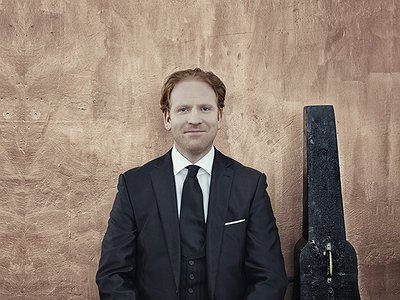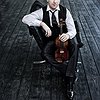As Charles Rosen put, “the death of classical music is perhaps its oldest continuing tradition”. From your perspective, what are some of the root issues for what is generally referred to as the “crisis of classical music” and what, to you, are sensible ideas for improving it?
I play over 100 concerts a year and I spend every day of my life playing, writing about and communicating music. Many of my esteemed colleagues do the same and even more. Classical music has existed happily for over 500 years and is in no danger of dying out. What I do think we need to focus on is how future, younger generations perceive and are exposed to classical music, especially now where most schools have scrapped it from their curriculum. That fact alone should be regarded as a crisis.
Music-sharing sites and -blogs as well as a flood of releases and concerts in general are presenting both listeners and artists with challenging questions. What's your view on the value of music today? In what way does the abundance of music change our perception of it?
I think that Youtube provides us with an amazing archive in which we can delve, not just hearing but seeing some of our musical heroes. That, as a resource, is invaluable. I think in general that it is a positive development that music is so accessible. I am not sure that everyone being an instant laptop music critic is all that helpful, but I suppose it has one bonus: the ‘real’ critics are now themselves under constant, worldwide scrutiny: the rules of the game are changing …
Many artists are finding it hard to secure a living with their music. What are the financial realities you're living with and in which way, do you feel, could they be improved?
That’s impossible to generalise. I can only speak for myself. I make music because I love it. I never made music to make money, or to be famous. If you go down that road, I don’t believe you will be successful.
Reaching audiences usually involves reaching out to the press and possibly working with a PR company. What's your perspective on the promo system? In which way do music journalism and PR companies change the way music is perceived by the public?
PR companies can only really do a good job if you as an artist have something unique to offer. At the end of the day it has to be about your story. I think the Internet actually provides young artists with a lot of power to get their own message out there and to create their own fan base. In my opinion this is not yet exploited enough by the artists themselves.
Usually, it is considered that it is the job of the artist to win over an audience. But listening is also an active, rather than just a passive process. How do you see the role of the listener in the musical communication process?
A concert is also about the exchange between performer and listener. We as performers rely on an audience who has their ears open as wide as possible. When that exchange happens, it can make for a great experience on both sides.
Please recommend two artists to our readers which you feel deserve their attention.
The mandolin player Avi Avital and the keyboard player Kristian Bezuidenhout. Two phenomenal and very different musicians.
To find out more about Daniel Hope, visit his homepage at http://www.danielhope.com/



